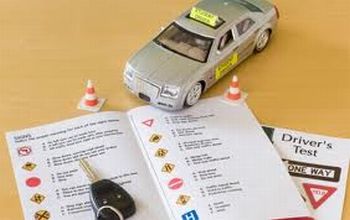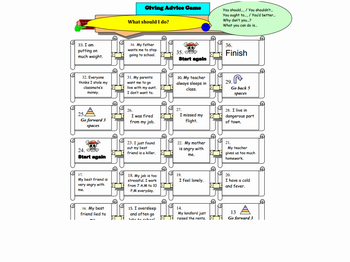19/06/2014
Eliana Dias e Lazuíta Goretti de Oliveira
| Modalidade / Nível de Ensino | Componente Curricular | Tema |
|---|---|---|
| Ensino Fundamental Final | Língua Estrangeira | Organização textual |
| Ensino Fundamental Final | Língua Estrangeira | Textos orais com marcas entonacionais e pronúncia |
| Ensino Médio | Língua Estrangeira | Competência comunicativa: componentes linguísticos, sociolinguísticos e pragmáticos |
| Ensino Médio | Língua Estrangeira | Compreensão leitora |
| Ensino Fundamental Final | Língua Estrangeira | Grau de formalidade na escrita e na fala |
| Ensino Fundamental Final | Língua Estrangeira | Aspectos morfológicos, sintáticos e fonológicos |
| Ensino Médio | Língua Estrangeira | Produção oral |
| Ensino Médio | Língua Estrangeira | Compreensão oral |
| Ensino Médio | Língua Estrangeira | Competência pluricultural: língua como meio de acesso às manifestações culturais |
| Ensino Médio | Língua Estrangeira | Produção escrita |
O que o aluno poderá aprender com esta aula
- Dar e receber conselhos
Duração das atividades
Conhecimentos prévios trabalhados pelo professor com o aluno
Não são necessários conhecimentos prévios, já que se trata de uma aula de nível básico.
Estratégias e recursos da aula
- recursos multimídia;
- imagens veiculadas na internet;
- atividades xerocopiadas;
- atividades online;
- diálogos;
- discussões;
- jogo.
GIVING ADVICE

MÓDULO 1
Atividade 1
Professor, introduza o tema da aula, falando de problemas de saúde, familiares, profissionais. Escreva alguns desses problemas no quadro e peça para que os alunos os numerem de acordo com o que consideram mais sérios (número 1) e menos sérios (número 8).
Atividade 2
Projete no datashow as diferentes formas de se dar conselhos na língua inglesa. Peça para que cada aluno leia uma delas em voz alta. Observe a pronúncia correta das expressões e as corrija, se necessário.
Ways of giving advice:
· YOU SHOULD + INFINITIVE
· YOU OUGHT TO + INFINITIVE (FORMAL)
· IT WOULD BE A GOOD IDEA IF YOU + PAST S.
· IF I WERE YOU, I WOULD ...
· YOU HAD BETTER ... + INFINITIVE
· YOU WILL HAVE TO + INFINITIVE
· IT IS TIME YOU + PAST SIMPLE
· WHY DON'T YOU ... + INFINITIVE
· YOU COULD ALWAYS ... + INFINITIVE
· HAVE YOU THOUGHT ABOUT ... + ING
· IMPERATIVES (Don't ... Do ...)
Fonte adaptada: http://busyteacher.org/18923-giving-advice-phrases-and-situations-healthy.html (Acesso em: 17.06.2014)
Other ways of giving advice: Ought to and Had better
Atividade 3
Disponível em: http://college-englishmag.com/COLLEGE-ENGLISHMAG.COM/Health_files/Giving%20Advice.pdf (Acesso em: 17.06.2014)
MÓDULO 2
Atividade 4













Atividade 5
Separe os alunos em duplas. Distribua as seguintes situações para cada aluno e peça para que elaborem diálogos de acordo com as informações recebidas. Disponibilize um tempo de aproximadamente 15 minutos para a elaboração dos diálogos. Em seguida, cada dupla deverá apresentar seu diálogo para todo o grupo. Observe se os alunos utilizaram as expressões apresentadas nas atividades anteriores.
· Student A: Your friend absolutely hates furry animals, but would like to buy a pet. Recommend a pet for him. Make sure it doesn´t have any fur.
· Student B: You hate furry animals but you would like to buy a pet. Ask your friend for advice on what type of pet to buy
- Student C: You would like to visit the zoo this weekend. However, you do not like the idea of walking through the entire zoo. Ask your friend for advice on what to visit.
· Student D: Your friend wants to go to the zoo. Give him advice on what to visit.
· Student E: Your cat has just gone missing! His name is Fluffy and he´s your best friend. You´ve looked all around the house and you´re afraid that he escaped while you were at school. Ask your friend for advice on where to look around the neighborhood.
· Student F: Your friend just lost his cat and needs help finding it. You don´t think the cat went very far. Give him or her ideas on where to look.
· Student G: You´re going camping with your parents this weekend, but you´re a little scared of getting bitten by mosquitoes. Ask your friend for advice on what you should bring to avoid mosquitoes.
· Student H: Your friend is afraid of going camping because he really doesn´t like mosquitoes. Give him some advice on how to avoid them.
· Student I: You´ve just caught the worst cold. You are sneezing all over the place and spreading your germs everywhere. You want to breathe normally again. Ask your friend what you should do.
· Student J: Your friend looks just awful. His nose is running, his eyes are puffy and you can tell that he didn´t sleep all night. He´s all congested. You´re mom gives you the best medicine that clears up a bad cold in no time. Talk to your friend and suggest what could take to relieve his cold.
· Student K: You were cutting some vegetables in the kitchen when suddenly, the knife slipped and your finger won´t stop bleeding. You´ve used 10 Band-Aids already. Ask your friend for advice on what to do.
· Student L: Your friend´s finger is really bleeding. I mean gushing blood. You don´t want to scare him/her but you think he/she should see a doctor or nurse. In the meantime, you think that he/she should put pressure on it and add ice.
· Student M: You were playing soccer with your friends when suddenly you twisted your ankle. It hurts a lot. You don´t want to cry in front of your friends so you are trying to act tough but it REALLY hurts. Ask your friend what you should do.
· Student N: Your friend just fell and is complaining about his ankle. You think he might have just rolled it, and he´ll be better in about 5 minutes. You are almost POSITIVE that he DID NOT SPRAIN IT. He is just being a big baby. Tell him to put some ice on it and MAN UP.
· Student O: You were eating some old candy that you had from last Carnaval. Unfortunately, it was so stale and hard that it broke your front tooth. It´s bleeding badly but you luckily found the tooth and you´re afraid to call your mom. She´ll be really mad. Ask your friend what you should do.
· Student P: Your friend just broke his tooth! He´s bleeding all over the place! You´re dad is a dentist and has always told you to put a missing tooth in milk until you get to the dentist. Meanwhile you should get some ice and gauze to stop the bleeding! Help your friend out.
Atividade 6
Acesse o site: http://www.esltower.com/GRAMMARSHEETS/modal%20advice/givingadvice.pdf (Acesso em: 18.06.2014) e peça para que os alunos joguem o jogo que consiste em dar conselhos para os problemas ou situações apresentadas. Premie o jogador vencedor de cada dupla ou trio de alunos. Circule pela sala e auxilie com vocabulário e pronúncia das palavras, se necessário.

Imagem ilustrativa do jogo
Atividade 7
Uma outra opção de jogo é a de mandar um aluno para fora da sala de aula. Todos os outros alunos deverão pensar em um problema imaginário para esse aluno que saiu da sala. Convide o aluno a entrar de volta e sentar em frente ao grupo. O aluno deverá adivinhar qual é o problema, baseando-se nos conselhos recebidos dos colegas.
Em seguida, você pode propor a seguinte discussão para os alunos:
- Who do you go to for advice?
- Do they give good advice? Why? Why not?
- Who comes to you for advice?
- Do you give good advice?
- Do you follow your friend’s advice?
- What’s the best / worst advice you’ve ever received?
- Does advice help? Or do most people ignore it?
- Sometimes advice can make you less decisive. Do you agree?
- Do you think some people are too proud to ask for advice?
Adaptado de: http://freeenglishlessonplans.com/2013/04/29/giving-advice/ (Acesso em: 18.06.2014)
Recursos Complementares
Para diversas atividades sobre o tema da aula, acesse:
http://busyteacher.org/3053-a-concentration-problem-using-should-for-giving.html
http://www.myenglishpages.com/site_php_files/communication-lesson-advice.php#.U6JVtZRdUeg
http://www.englishexercises.org/makeagame/viewgame.asp?id=1734
Para vídeo, acesse:
http://www.agendaweb.org/videos/study-english/series-3/3-26-giving-advice.html
Todos os links foram acessados em: 18.06.2014
Avaliação
Todas as atividades da aula deverão ser avaliadas. Observe o envolvimento e a participação dos alunos durante todos os momentos da aula.
Para uma avaliação formal, peça para que os alunos, em duplas, elaborem um diálogo em que discutam sobre um problema e deem um conselho. Os alunos deverão encenar o diálogo. Observe o uso das expressões introduzidas na aula, assim como a criatividade dos alunos na elaboração dos problemas e suas soluções.
Cinco estrelas 1 classificações
- Cinco estrelas 1/1 - 100%
- Quatro estrelas 0/1 - 0%
- Três estrelas 0/1 - 0%
- Duas estrelas 0/1 - 0%
- Uma estrela 0/1 - 0%
Denuncie opiniões ou materiais indevidos!
Opiniões
-
FELYPE FORTE DE ARAUJO, ANTERO JOSE DE LIMA EEFM MONSENHOR , Ceará - disse:
felype.forte@hotmail.com14/07/2014
Cinco estrelasMuito boa aula. Além de ter várias atividades importantes aos alunos, a avaliação proposta ficou bem clara para mim. Gostei também de ter disponibilizado vários links de apoio para que possa haver uma adaptação por cada professor.
- Sugestão de aula
- Aulas
- Coleções de aulas
- Criar aula
- Criar individual
- Criar em equipe
- Gerenciar equipes
- Minhas aulas
- Orientações
- Criando equipes
- Dicas para a produção de aulas
- Reflexões pedagógicas
- Utilizando a ferramenta
- Artigo: portal educacional
- Estatísticas de uso do Portal
- Estatísticas de aulas
- Estatísticas de recursos
- Estatísticas de visitas
- Recursos utilizados em aulas
- Reflexões pedagógicas
- Informações de cursos
- Cursos
- e-Proinfo
- Materiais de cursos
- Materiais de estudo
- Artigos e publicações
- Assuntos relevantes
- Avaliações
- Ciência do cotidiano
- Destaques internacionais
- Dicas práticas
- Educação profissional e tecnológica
- Entrevistas
- Estratégias pedagógicas
- Inovações tecnológicas
- Materiais de cursos
- Materiais de evento
- Orientações e diretrizes
- Parâmetros e referencias
- Programas em vídeos
- Tutoriais
- TVescola
- Ferramentas do portal
- Fórum
- Portal do Youtube
- Compartilhando apresentação
- Ferramentas pela internet
- Blog
- Compartilhe vídeos
- Comunicação on-line
- Crie e compartilhe apresentações
- Edite e compartilhe fotos
- Escrita colaborativa
- Junte-se a uma comunicade
- Lista de discussão
- Organize e compartilhe favoritos
- Podcast
- Rádio/TVs Universitárias e outros
- Redes Sociais
- Robô Ed
PLATAFORMA FREIRE
- Bibliotecas
- Capacitação Proinfo Integrado
- Cultura
- Dicionários, tradutores e enciclopédias
- Educação inclusiva
- Geoprocessamentos
- Inclusão digital
- Infográficos
- Jogos educativos
- Jornais
- Museus
- Observatórios e planetários
- Organizações governamentais
- Plataformas educacionais
- Portais educacionais e outros
- Portal MEC
- Prêmio professores do Brasil
- Produções de professores
- Projetos de escolas
- Projetos inovadores
- Projetos sociais e educacionais
- Rádio escola
- Recursos digitais
- Revistas
- Sites de busca
- Sites temáticos do portal e TVescola
- Softwares de edição e outros
- Softwares educacionais
- Um computador por aluno

- Ryan Oksenhorn
- Ryan Snow
- Sergio Caldara
- Shane Miler
- Shane Herzog
- Sotirios Papavasilopoulos
- Stephen JB Thomas
- Tarah
- Valera Nazarov
- ZbigniewMa K Flakus



